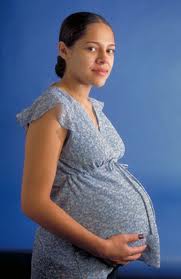 The rising rates of diabetes during pregnancy was explored in a new study reported at a recent Obesity Society meeting. Kelly Hunt, PhD, Medical University of South Carolina reported that the estimated rate of diabetes during pregnancy (combining gestational a pre-pregnancy diabetes) increased from 5% to 8.7% among white women and from 5.7% to 9.7% among black women.
The rising rates of diabetes during pregnancy was explored in a new study reported at a recent Obesity Society meeting. Kelly Hunt, PhD, Medical University of South Carolina reported that the estimated rate of diabetes during pregnancy (combining gestational a pre-pregnancy diabetes) increased from 5% to 8.7% among white women and from 5.7% to 9.7% among black women.
She said diabetes rates overall increased because of the obesity epidemic and the rising age at which women are giving birth.
"One thing that's good is that the awareness of diabetes during pregnancy has increased a lot in the past 20 years, which is important because you want either pre-pregnancy diabetes or gestational diabetes to be treated during pregnancy so that the impact on the infant is minimized," Hunt said.
Exposure to diabetes during pregnancy has been associated with birth defects, higher birth weight, and greater risks of childhood and adult obesity in the offspring.
"More interventions are needed, both to reduce the prevalence of diabetes prior to pregnancy and to prevent women who have gestational diabetes from subsequently developing type 2 diabetes," she added. "So I would say the take-home message is that we have a lot more work to do and with the obesity and diabetes epidemics, we really need to be thinking about how they're impacting the next generation."
Primary source: The Obesity Society
Source reference:
Hunt K, et al "Prevalence estimates of diabetes during pregnancy in United States women, 1980 to 2008" Obesity Society 2012; Abstract 744-P.

 Women who tend to have high blood pressure (HBP) should be particularly vigilant if they are on oral contraceptives, are pregnant, or on hormone replacement therapy.
Women who tend to have high blood pressure (HBP) should be particularly vigilant if they are on oral contraceptives, are pregnant, or on hormone replacement therapy.